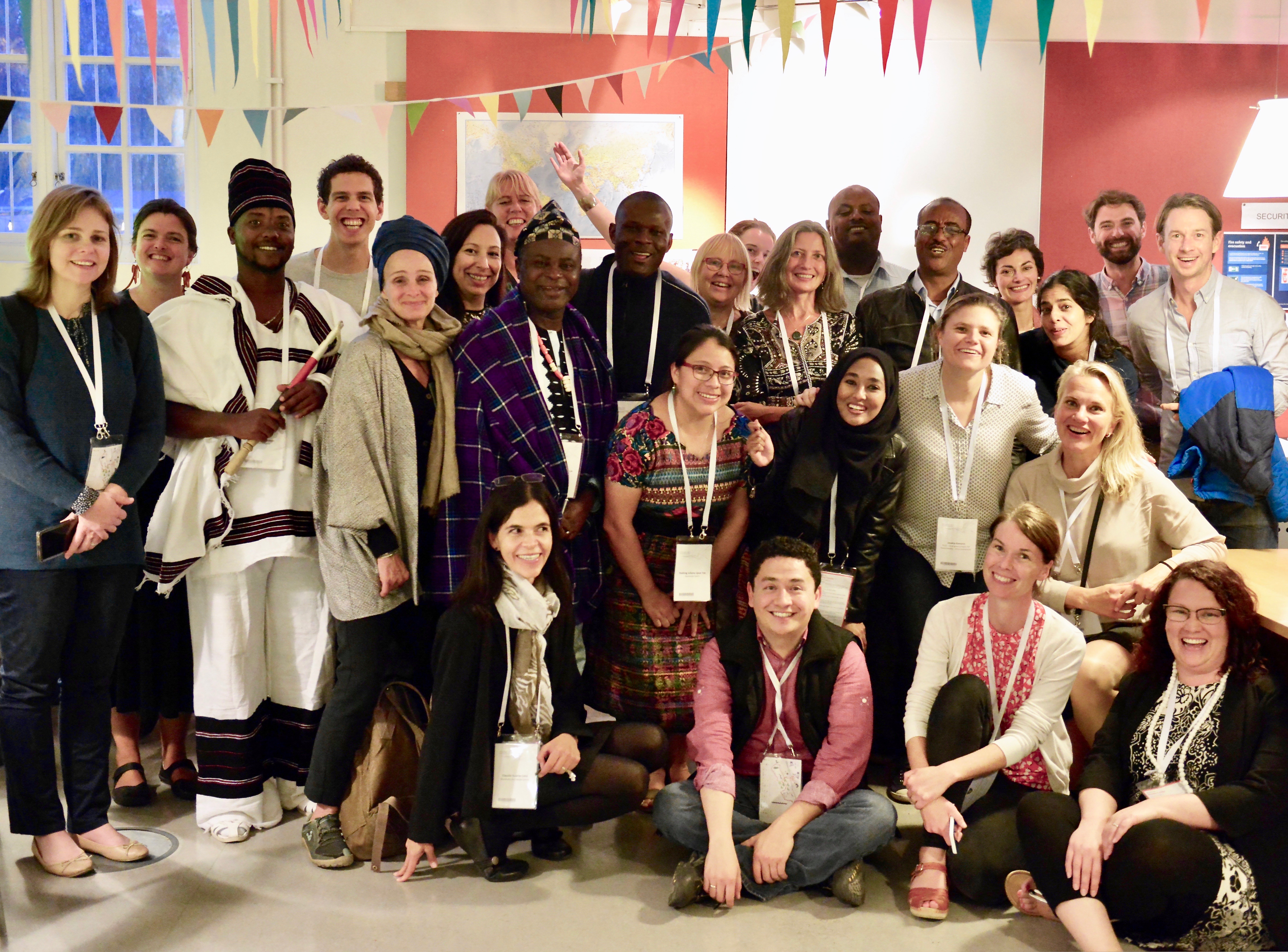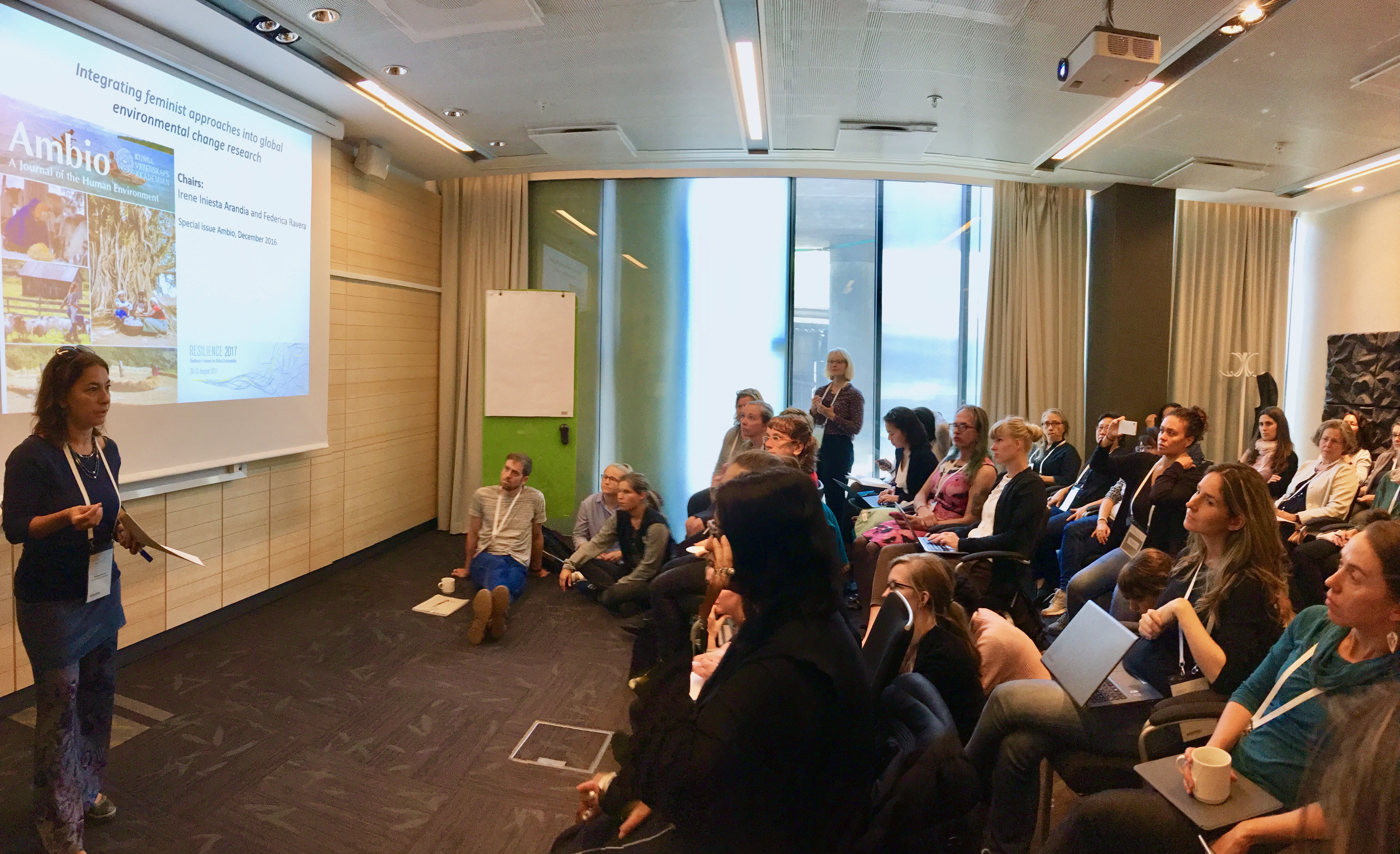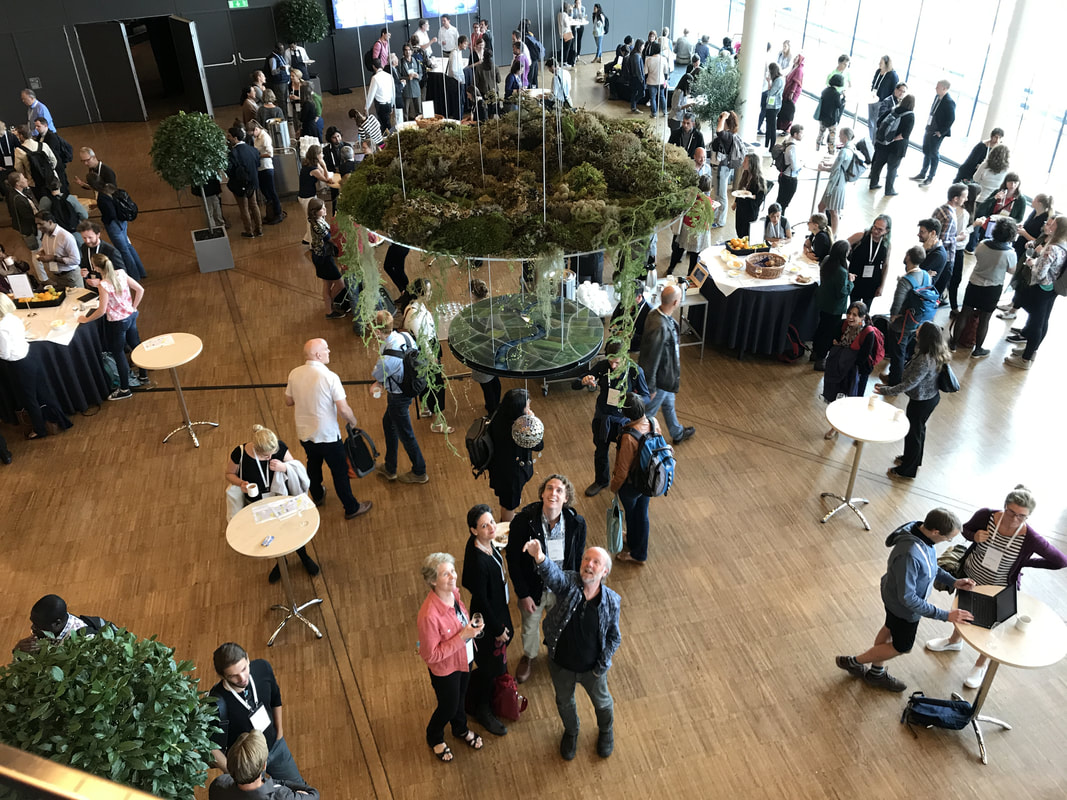 Story highlights
Story highlights
- SwedBio supported 22 global south experts to attend the Resilience 2017 conference
- The participants contributed invaluable knowledge on practice and policy to the conference, with a development perspective
- The knowledge and connections built at the conference will revitalise and strengthen work for sustainable development in each one's applied context
- Fruitful knowledge generation and exchange emerges as biosphere-based resilience science encounters on-the-ground development work
More than one thousand people from seventy countries gathered in Stockholm August 21-23rd to share experiences and insights from resilience-focused research, practice and policy, to identify gaps, analyse challenges, and discuss pathways towards sustainable development.
The conference programme ran to 440 pages and included a “smorgasbord” of events: keynote speeches, seminars, speed-talks, photography exhibitions, panel discussions, workshops, music, dancing, yoga and a flash mob.
SwedBio supported the participation of 22 practitioners and policymakers bringing first-hand experiences gained from years working on the ground in Guatemala, Ethiopia, Kenya, India, Mexico, Bangladesh, Benin, Malaysia, Zambia, Paraguay, Bhutan, South Africa, Senegal, and Colombia. This important global south perspective contributed to discussions in fields as diverse as law and advocacy, community-based activism, biodiversity conservation and international governance.
The SwedBio team met with partners at the Stockholm Resilience Centre
The SwedBio team asked partners what it was like to participate in a global gathering about biosphere-based sustainability. Their reflections reveal contributions and lessons exchanged through fruitful discussions at the convening. Some edited extracts humbly convey insights about going beyond one’s comfort zone, making connections and, last but not least, Swedish hospitality.
Contributing different perspectives
During the lunch and coffee or fika breaks, guests had the chance to meet colleagues whose work they had heard or read about and talk face-to-face.
“In parallel and break away sessions we tried our best to bring in the African perspective as well as bring in a more practitioner perspective ” Jess Kavonic, ICLEI, South Africa
“I brought a new area of law to Resilience 2017. The issue is in its infancy, but is likely to take main stage by 2020, so it was interesting to present on the issues and garner feedback” Harry Jonas, Natural Justice, Malaysia
Connecting the dots between people and practice
Many said that they enjoyed bringing their diverse expertise from different parts of the world into conversation – from hands-on activism to policy making.
“It was nice to be able to convey my experience of working with theory in ‘the real world’ and bring a global South perspective to discussions” Nadia Sitas, CSIR, South Africa
“I feel I succeeded to highlight that a profound analysis of potential power imbalances is essential to address potential inequities in concepts like participation and poly-centric governance. I was positively surprised this message was so well received” Simone Lovera, Global Forest Coalition, Paraguay
“My contributions…were through sharing my practical ground experiences on the resilience work particularly in working with the local communities [in Ethiopia]” Abebayehu Kassaye, MELCA, Ethiopia
Taking home knowledge and insights
“I gained deep reflections on the way in which the developed world and the academy is searching contributions and answers towards the future in the Anthropocene” Carmen Miranda, SAVIA, Bolivia
“Two major benefits are gaining knowledge and building network with others. Since I have to lead in developing resilience projects, the knowledge would definitely assist me in designing projects and attract funding” Md Khalid Hossain, Oxfam, Bangladesh
“Participation in this event will undoubtedly and concretely influence my professional work” Fataï Aina, AMAF, Benin
Lots of challenges lie in store
Plenty of participants have been instrumental to the positive progress that’s underway in transforming and transitioning to sustainable systems and practices. The conference also highlighted areas that are ripe for the committed attention of communities, practitioners, scientists, artists, policymakers and governments.
“The conference also made me realise that it is a major challenge to address the social equity dimension of the concept of resilience” Simone Lovera, Global Forest Coalition, Paraguay
“I plan to connect for building capacities and in a near future… submit a project proposal together to advance on this topic in Mexico” Martin Cadena, UNDP, Mexico
“I have learned the value of diversifying the farmers’ livelihoods which is important in strengthening the resilience of the farmers against the adverse current effects such as climate change” Abebayehu Kassaye, MELCA, Ethiopia
There’s always room for improvement
One of the toughest parts of the week was choosing between the numerous parallel sessions that participants could attend, which were all in English.
Several parallel sessions attracted many participants to fill rooms at complete capacity
“It would have been better to take into account the three languages of the United Nations (English, French and Spanish) during the conference” Fataï Aina, AMAF, Benin
“It was difficult to follow the big program of the Conference” Carmen Miranda, SAVIA, Bolivia
And in between all the thinking and talking, there was space for art and Swedish hospitality
The “Nature/Society/Economy” sculpture installation by Tone Bjordam at the conference venue
“ I loved the focus on art and science” Nadia Sitas, CSIR, South Africa
“I highly appreciated the Swedish people; their hospitality, their respect and discipline and they are also supportive and just they are nice people” Abebayehu Kassaye, MELCA, Ethiopia
The participation of those experts was key for the overall positive outcome of the conference. It helped connect research efforts to on-the-ground practices, enriched the discussion with diverse points of view, promoted fruitful knowledge exchanges to inform policy processes, and overall added voices of the global south to an international forum.




 Private: Daniele Crimella
Private: Daniele Crimella